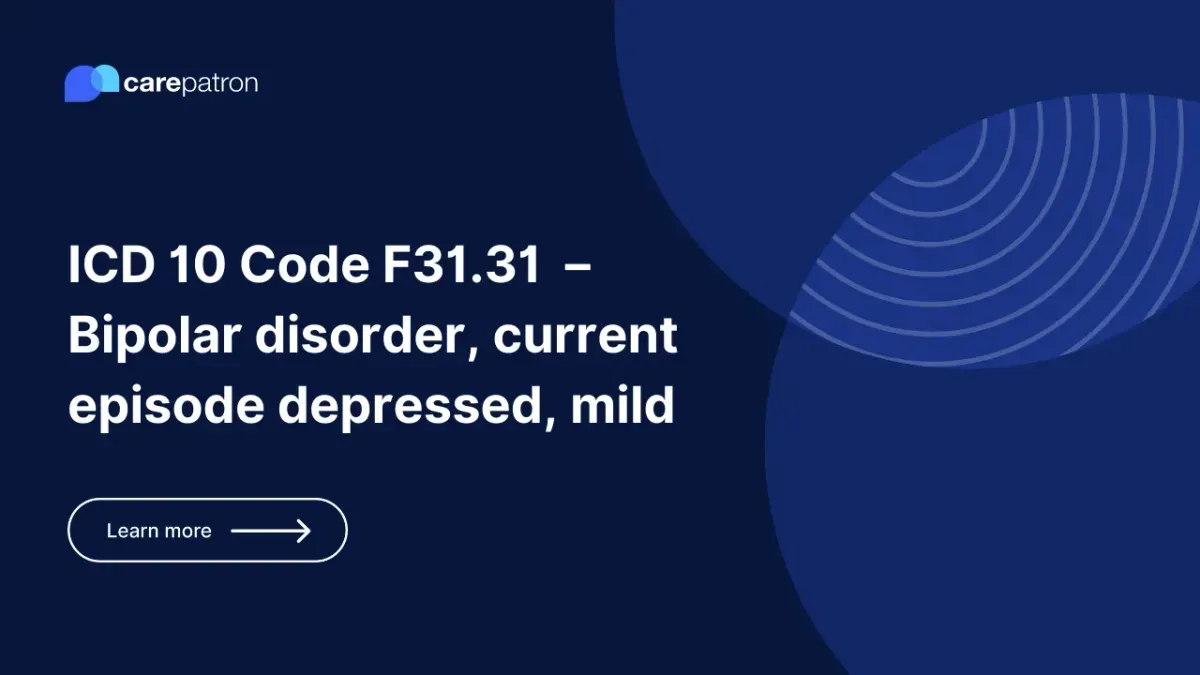
F31.31 – Bipolar disorder, current episode depressed, mild
Learn about the ICD F31.31, identifying mild depressive episodes in bipolar disorder through this guide.
Use Code
Commonly asked questions
Yes, without proper management, mild depressive episodes in bipolar disorder can potentially escalate in severity.
Treatments typically involve medications like mood stabilizers, antidepressants, and sometimes psychotherapy, including cognitive behavioral therapy or interpersonal and social rhythm therapy.
Yes, maintaining a regular sleep schedule, eating a healthy diet, regular exercise, and avoiding alcohol, caffeine, and illicit substances can significantly aid in managing bipolar disorder.
EHR and practice management software
Get started for free
*No credit card required
Free
$0/usd
Unlimited clients
Telehealth
1GB of storage
Client portal text
Automated billing and online payments
